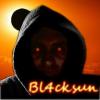
Posted
There seems to be a new AI composer on the block. From the samples, it sounds to do quite a good job. It's based on deep learning theory. It appears that you can't actually buy the product just get a quote for music composed by it for your film/show/etc.
(http://www.aiva.ai/creations)
soundcloud page of example work
Mo., 28.08.2017 - 13:24 Permalink
I'm relieved to hear that it can't generate really catchy melodies. But for many TV films it is good enough.
Mo., 28.08.2017 - 19:52 Permalink
Cool indeed, and very impressive.
I'm familiar with the machine learning technology behind it. ML (or: Deep Learning) trains deep neural networks with thousands of input samples in order to have it figure out regularities and patterns by itself (much simplified explanation). Judging by the marketing references, this network is run on tons of NVIDIA CUDA hardware. You can't easily do this at home. Google Cloud offers such hardware for rent as a virtual data center resource, though. In fact, Cognitone is experimenting with this too.
It has very similar underpinnings like the Google Deep Dream project, which comes up with amazing and uncanny psycho pictures of animals and random creatures if fed an arbitrary input picture. Basically you see what it "sees" (= recognizes) in the input picture. Since the network was trained on images of animals, it happens to "see" animals everywhere.
With music, it is almost the same: The network is trained on classical works and then, if given some random input, it "hears" (= recognizes) fragments of these works and reasembles and merges them. I can only speculate, but from the music examples, it sounds like the overall structure was still "curated" by a human.
This neural network approach to composing is great at imitating the styles it has been fed with. What it can't do is develop a personal expression, let alone come up with a new style. As tom11 noted correctly, it can't compose a catchy melody or recognizable theme. That's because it creates a blend of associations, which somehow "blurs" the catchyness of the originals. If it weren't doing this blurring, you would instantly recognize, say, Beethovens 5th, and think it's a scam ;-)
There is for sure some use for music created this way. But by any means, the music has little to do with you as a composer.
Now, if you want a blend of Beethoven, Mozart and Herbie Hancock, you can do that with Synfire relatively easily. Your decision which fragments to use, how to combine them, etc, is composing already. No matter how you choose to transform the fragments and mash them up, their original catchyness is preserved to a large extent.
That said, I can imagine a not so distant future of Synfire, where much of this fragmenting and transforming could be automated and randomized to boost your productivity and fun. But one thing Synfire will never do: Take your control away.


